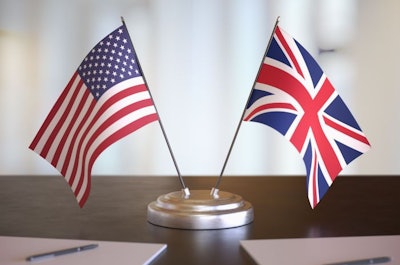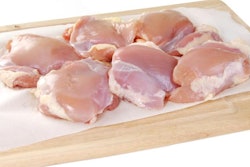
As the departure of the United Kingdom from the European Union (EU) fast approaches, the country is facing the realities of independently forming new trading relationships with the EU, the United States, and the rest of the world.
While the U.K. looks forward to being free to negotiate new trade deals with new partners, it turns out free trade is not the ultimate goal. And there will likely need to be compromises.
Achieving a delicate balance between trade and standards was never going to be easy. And the challenge has been made stepped up as the U.K. has made it clear that chlorine-washed chicken and hormone-treated beef will be excluded under any trade deal with the U.S.
The current EU ban on the import of these two foods will be transferred into U.K. legislation after Brexit, Environment Secretary Theresa Villiers has told the British Broadcasting Corporation (BBC).
According to the BBC report, the EU holds that the consumption of beef from animals treated with hormones “could potentially result in harm.” While accepting that chlorine effectively kills Salmonella on chicken carcasses, it continues that the procedure “allows American farmers to be careless with the welfare of the chickens.”
After Brexit, the U.S. had hoped the U.K. would step back from the EU’s hard line over these issues. This now looks unlikely.
U.S. agencies fervently reject the suggestions that beef produced using hormone treatments or chlorine washing of chicken carcasses as a pathogen reduction treatment pose any risk of harm to consumers. These issues represent key issues for the U.S. in future trade talks between the two countries.
Already in 2017, chlorinated chicken emerged as a stumbling block in trade talks between the U.S. and the U.K.
Villiers’ full interview will be shown on BBC TV later this month.
'No undermining of food, welfare standards'
Speaking at the recent Oxford Farming Conference, Villiers stated that the U.K. government will “maintain and indeed enhance U.K. standards as we negotiate new trading relationships with friends and neighbors in the EU and leading global economies.”
“We will not dilute our strong environmental protection,” she said. “We will not dilute our high standards of food safety and animal welfare.”
In Scotland, fears are that British consumers will not know what they are buying and consuming if “cheap meat imported from the U.S.” is included in a future trade deal.
There is a risk that food regulatory standards could be lowered by a U.S.-U.K. trade deal, reports The Scotsman.
Rural Economy Secretary Fergus Ewing has said that Scottish government would resist all attempts to undermine national food standards.

















